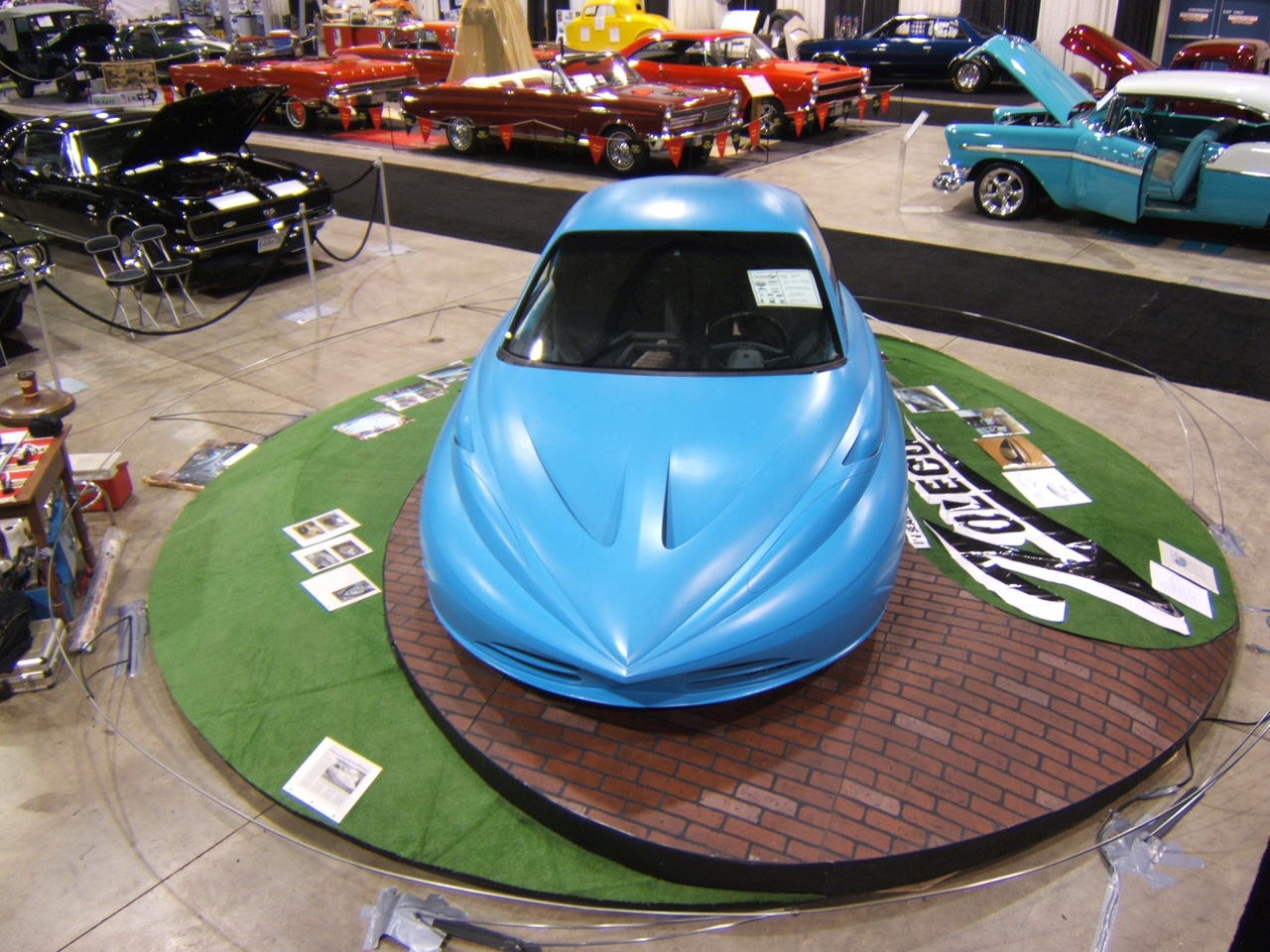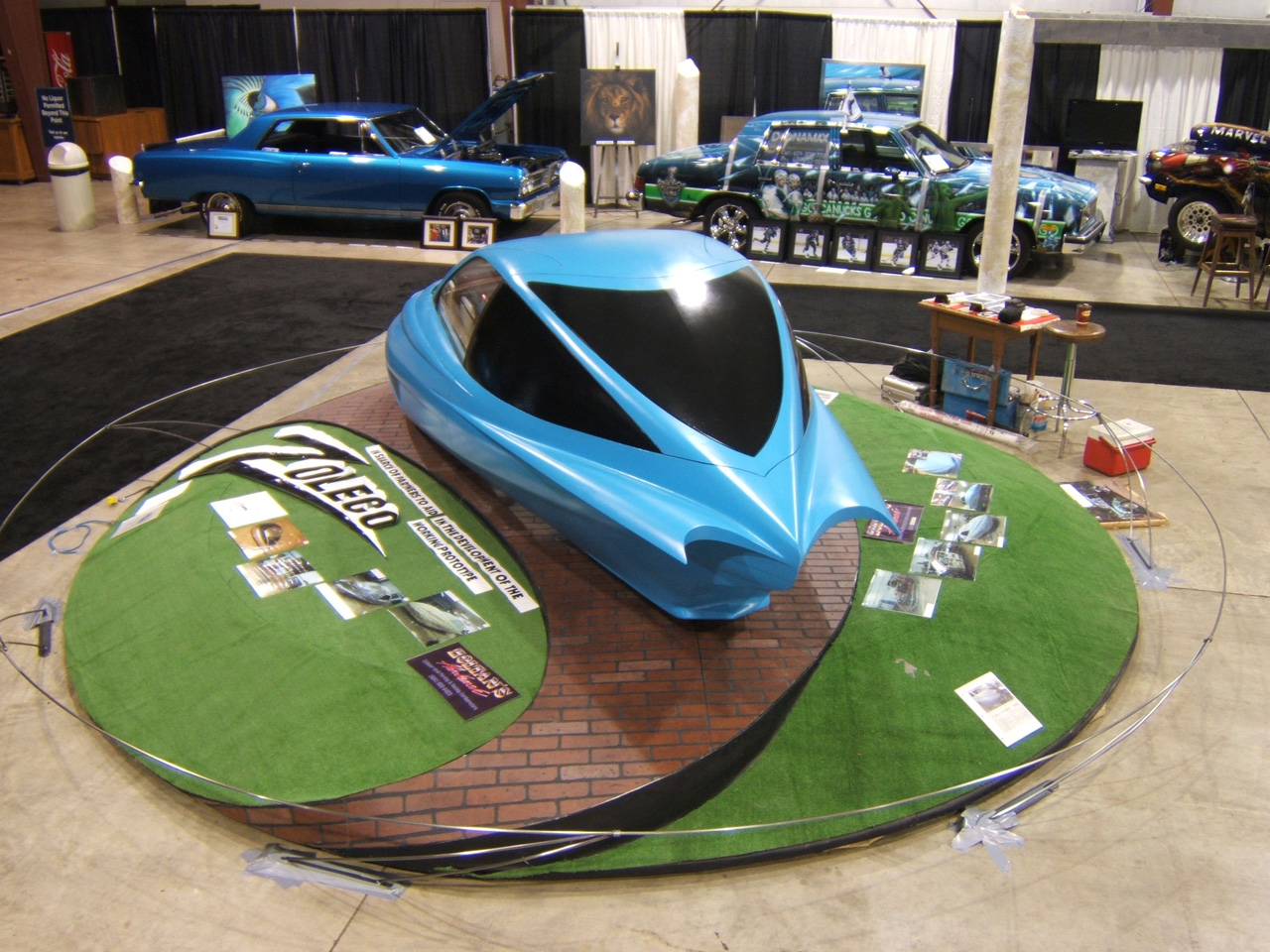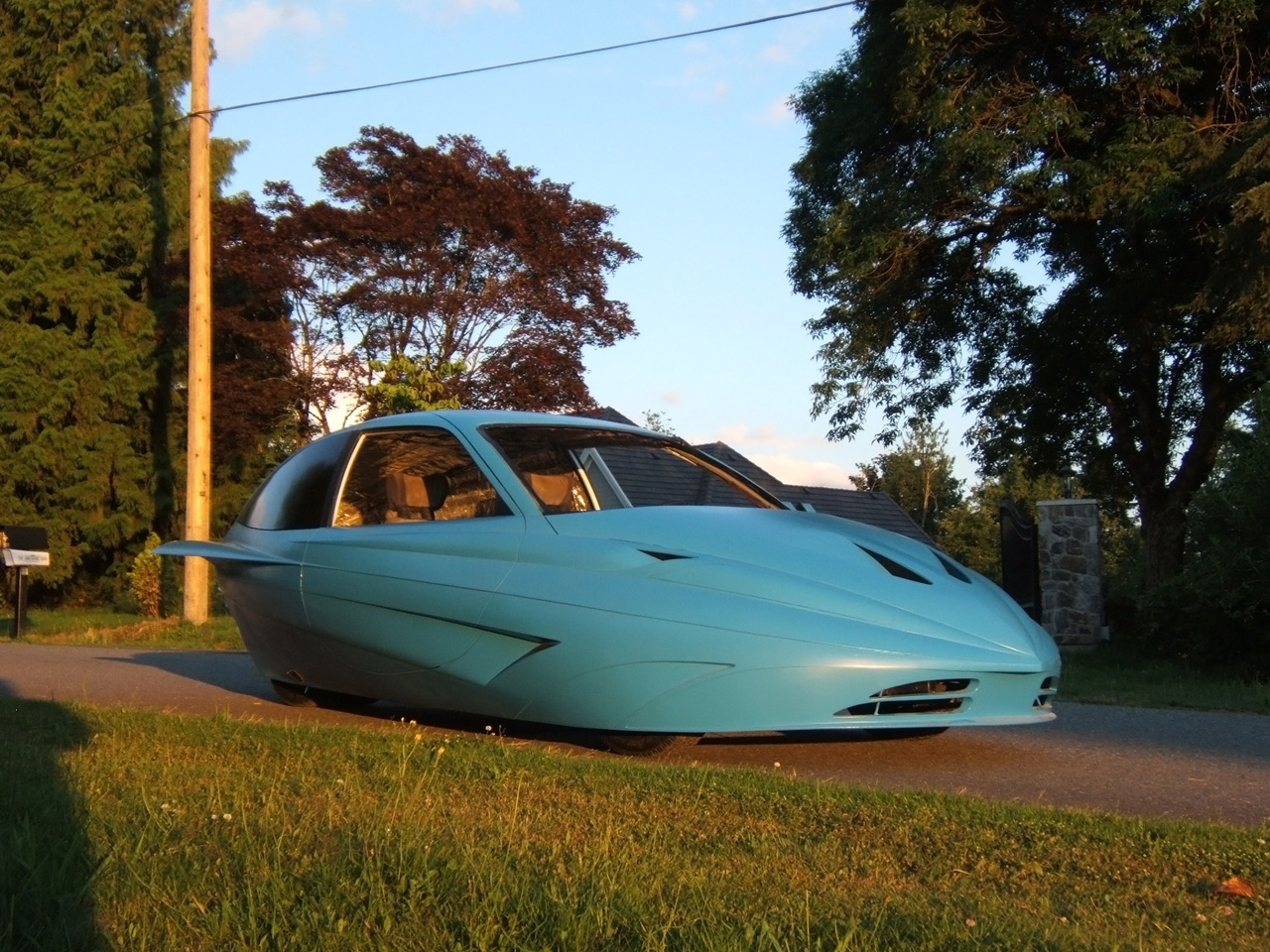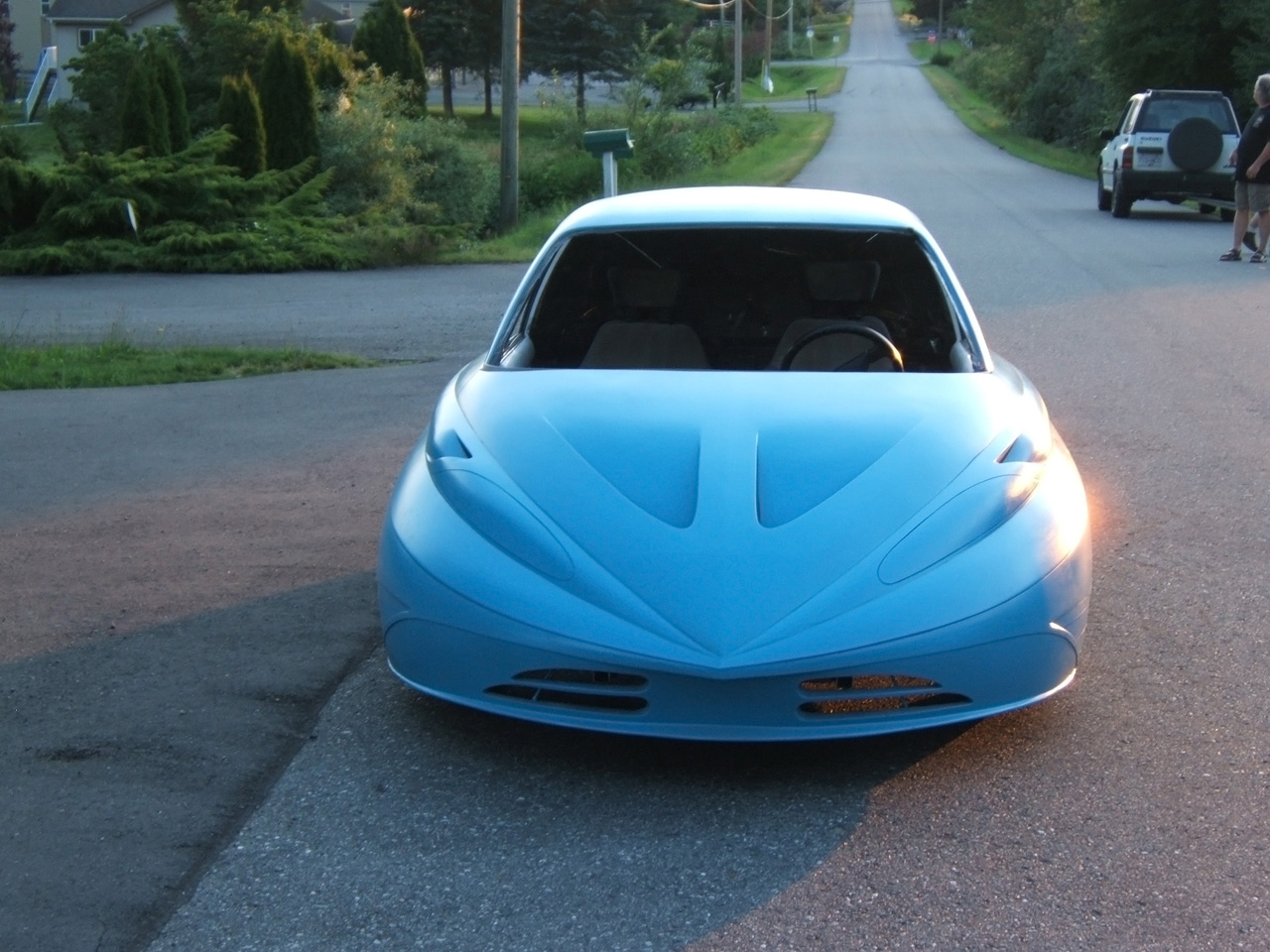2012 Zoleco
|
Price |
-- |
Production |
-- | ||
|
Engine |
3 cylinder |
Weight |
-- | ||
|
Aspiration |
turbocharged |
Torque |
-- | ||
|
HP |
-- |
HP/Weight |
-- | ||
|
HP/Liter |
-- |
1/4 mile |
-- | ||
|
0-62 mph |
-- |
Top Speed |
-- |
(from
Zoleco
and Zoltan Bod) The Car
The car which I have decided to call the Zoleco is a combination of
my name and the cars main theme which is to be friendly to the
environment... eco.
The main focus of this project is to conserve energy by creating a
means of personal transportation that minimizes energy required for
mobility. We do that by using ques from nature in designing it's
shape... the teardrop. The teardrop shape with all its streamlining
effects has been known to be very low drag and aerodynamic for over
ninety years. One of the pioneers who researched and experimented
with automotive aerodynamics and streamlining was an engineer by the
name of Paul Jaray back in 1920. Incorporating this shape in to my
design and not ignoring practicality was a challenge. The body was
designed with full ergonomic considerations to allow for it to seat
four people comfortably. To that effect we now have a car that seats
four and needs minimal energy for affective mobility. To supercharge
those benefits further the car will use braking and thermal energy
recovery technologies in its quest to efficiently conserve as much
energy as possible. The result of this careful design exercise is an
exotic, sporty, practical, comfortable, safe, eco friendly, unique,
fun to drive car that makes one heck of a personal statement as it
cruises the streets in search of tomorrow!
Development Summary
The first goal is to
complete the proof of concept prototype and use it for marketing and
promotion so that we may initiate the limited production process
based on custom orders.
Second is to build the research and development vehicle and use it
to fine tune the current technologies used in the prototype as well
as implementing new ones as they present themselves from the energy
research being done.
The third phase in this evolutionary process is to build production
cars that will surpass the original proof of concepts energy
conserving achievements. Up to this point these will be all hand
built cars which are cost prohibitive for mass markets so they will
be built for discerning customers who want to be involved in the
evolution of personal transportation all the while displaying their
love and passion for unique precision built automobiles. It is at
this time that we discover whether the Zoleco goes on as a limited
production special interest car or is given the ability to go on as
a mass produced vehicle if accepted by the masses. I am also looking
at the possibility of offering it as a homebuilt kit for those that
want a hands on cost effective way of getting into this type of car.
Benefits
Once all the body,
interior and underbody design is completed there will be a complete
set of multi-section molds built. From these molds the body panels
will be laid up using a combination of carbon fiber and Kevlar for
strength and light weight. The front and rear of the car will have
energy absorbing bumpers and associated crush zones built into the
chassis. The doors will also have crash energy absorbing structures
built into them. These features will make the car a safety structure
to protect the occupants in case of a high speed crash.
The benefits associated with the drag reduction of this body design
works out as follows. It reduces the Cd by 50% over your typical
small car with this engine... that results in an 82% reduction in
fuel consumption with no changes to the engine. The next big benefit
is the reduction in power required to travel at a certain speed. All
indications are that the Zoleco will require 8.2 hp to maintain
65mph.Taking a look at it from a Bonneville Salt Flat perspective
indications are that the 80hp available with the baseline engine
could feasibly push the Zoleco to just over 145mph with minimal wind
noise. Hmmm so 200mph would require... well we will leave that for a
later discussion.
The production chassis will be built using light weight chromoly
tubing in a full perimeter space frame configuration including a
full roll cage embracing the body structure.
The suspension will be macphersion strut in the front with dual
swing arms in the rear. There will be a hydraulic system
incorporated over the spring suspended units to allow for ride
height variation as well as interactive sway control for ultimate
cornering and obstacle avoidance stability.
The drive system for the car will be a 3 cylinder turbo charged
gasoline engine and 5 speed manual transmission. This power plant is
what I call the baseline unit which gives us good power with great
fuel economy in a compact light weight package. I estimate this
system to give us 91.4 mpg (us) at a speed of 65mph with 27% engine
efficiency.
The research car is where we will be conducting thermal efficiency
improvement experiments. By just improving the efficiency 2% the
mileage will improve by 7% or 6.4 mpg over our 91.4mpg baseline. Of
course these are just speculative calculation using existing
formulas... however the exciting part will be the actual
implementation of these improvements to see just how close we are in
our preliminary calculations.
Objectives
(1) To prove that
aerodynamic body shaping and streamlining can have significant
affects on reducing drag and energy consumption while
maintaining good ergo dynamics in this unique and exotic body
design.
(2)To introduce the Variable Flow Control cylinder head, VFC.
(3)Use the VFC to reduce engine pumping losses by taking the
throttle body out of the flow path.
(4)Use the VFC to reduce mechanical and frictional losses by
eliminating the camshaft, poppet valves and valve springs.
(5)Use the VFC system for engine throttling.
(6)Use VFC to boost volumetric efficiency and HP per cubic inch
(7)Use VFC to reduce emissions, fuel consumption and thermal
loses.
(8)Reduce braking losses with a state of the art brake energy
capture system.
(9)Reduce and capture waste thermodynamic energy.
Engine Technology Research
I have been looking at the possibilities of designing a cylinder head configuration which would have fully variable valve lift and duration incorporated into the cylinder head. This advanced system would eliminate the camshaft, pushrods, lifters, valve springs and associated hardware. The throttling of the engine would also be achieved strictly with valve control. These are not your typical valves. They are distant cousins to the old rotary valve idea. The fruition of this design concept would be huge for the internal combustion engine and its efficiency level. This is just one example of the intellectual properties that are waiting to be developed on the research car.



